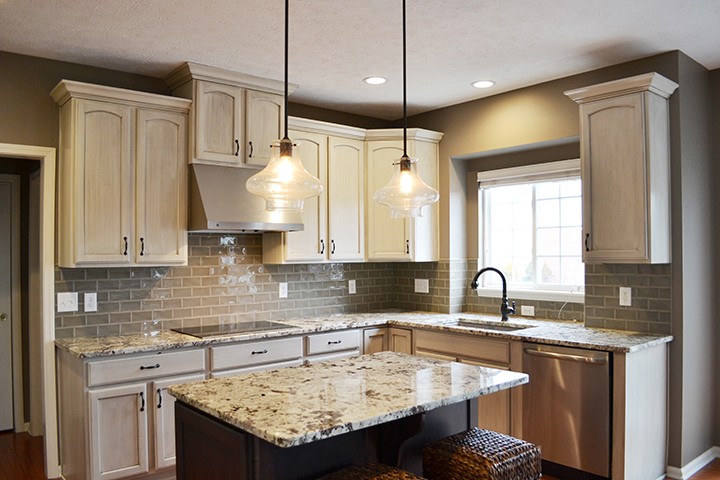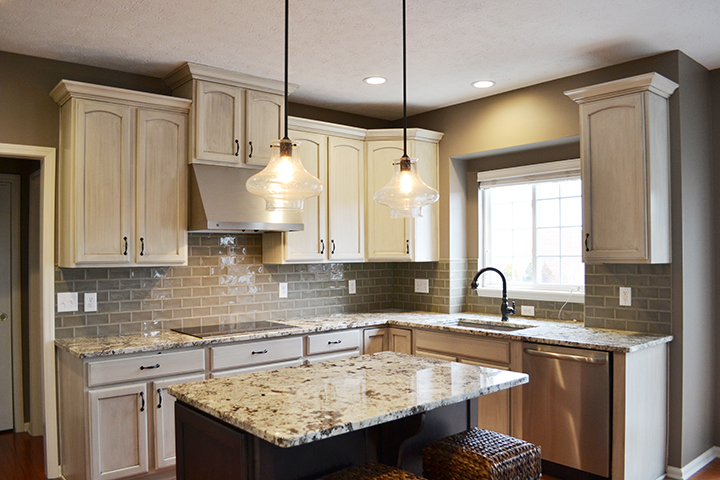
Because they take up so much visual space, countertops are one of the keystones of kitchen design. It’s amazing to see the difference that new countertops can make in a room, even if all of the other elements (such as flooring or cabinetry) stay the same. When selecting new countertops, the first thing you’ll need to consider is the type of material. Today, two of the most popular materials on the market currently are granite and quartz. So what is the difference between the two materials? Let’s explore the properties of each and examine the types of projects that work with one type of stone versus the other.
Granite is a naturally occurring material that is mined from the earth in large pieces, but later broken down into slabs. These granite slabs are then treated to a fine polish using a polyurethane sealer or resin that makes them water resistant. Each piece of granite is 100 percent unique. The color, grain and overall look of the stone will vary from slab to slab, even if they have been mined from the same quarry. The key to granite’s enduring popularity is its durability. If you keep your granite properly cleaned and sealed, spills and stains should never be an issue.
Quartz, on the other hand, is engineered from a combination of stone, composites and resins. Like granite, quartz is a naturally occurring stone element. But because quartz products are partially manufactured, it has the ability to look much more uniform than granite. One of the biggest benefits would be the low maintenance factor. Quartz is overall nonporous, which means it will not absorb water and microbes. Additionally, it will not require sealing/re-sealing, which will save you time and money.
So now, with all of this background information on the two different types of stones, how do you go about choosing one that’s right for your specific project? The ideal stone choice will vary depending on usage and environmental factors. Here are some things to keep in mind:
- Granite is more heat resistant than quartz. So you may want to select granite for kitchen countertops, if you are planning on setting hot pans directly on the stone.
- Because quartz does not need to be sealed and is more resistant to water, you may want to choose it for shower ledges, bathroom vanities or sink backsplashes.
- Quartz is a bit more scratch resistant than granite. This makes it a better fit for bar ledges or other high traffic areas that may be prone to damage.
- Because each slab is distinct, you may want to put granite in a project that requires smaller quantities to ensure that each piece matches. If you have a large surface area to cover, quartz might be a better option.
Although they are far from the only materials you can choose for countertops, granite and quartz can both bring a polished, natural and impressive look to any space. If you’re looking for inspiration, ideas or examples of stone installations, The Affordable Companies website is a great resource. Check some of our latest installations and get some inspirations for your next remodel.



